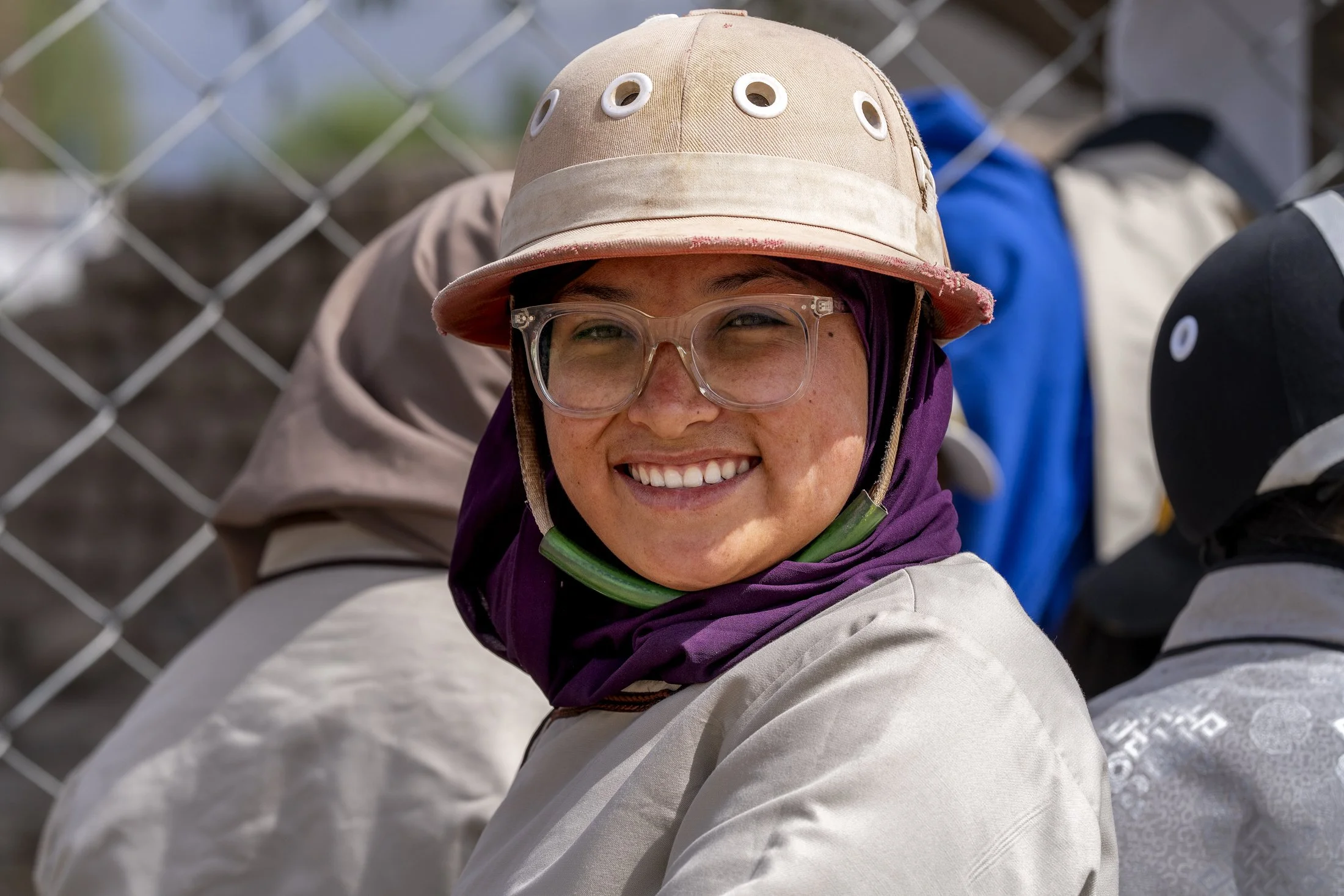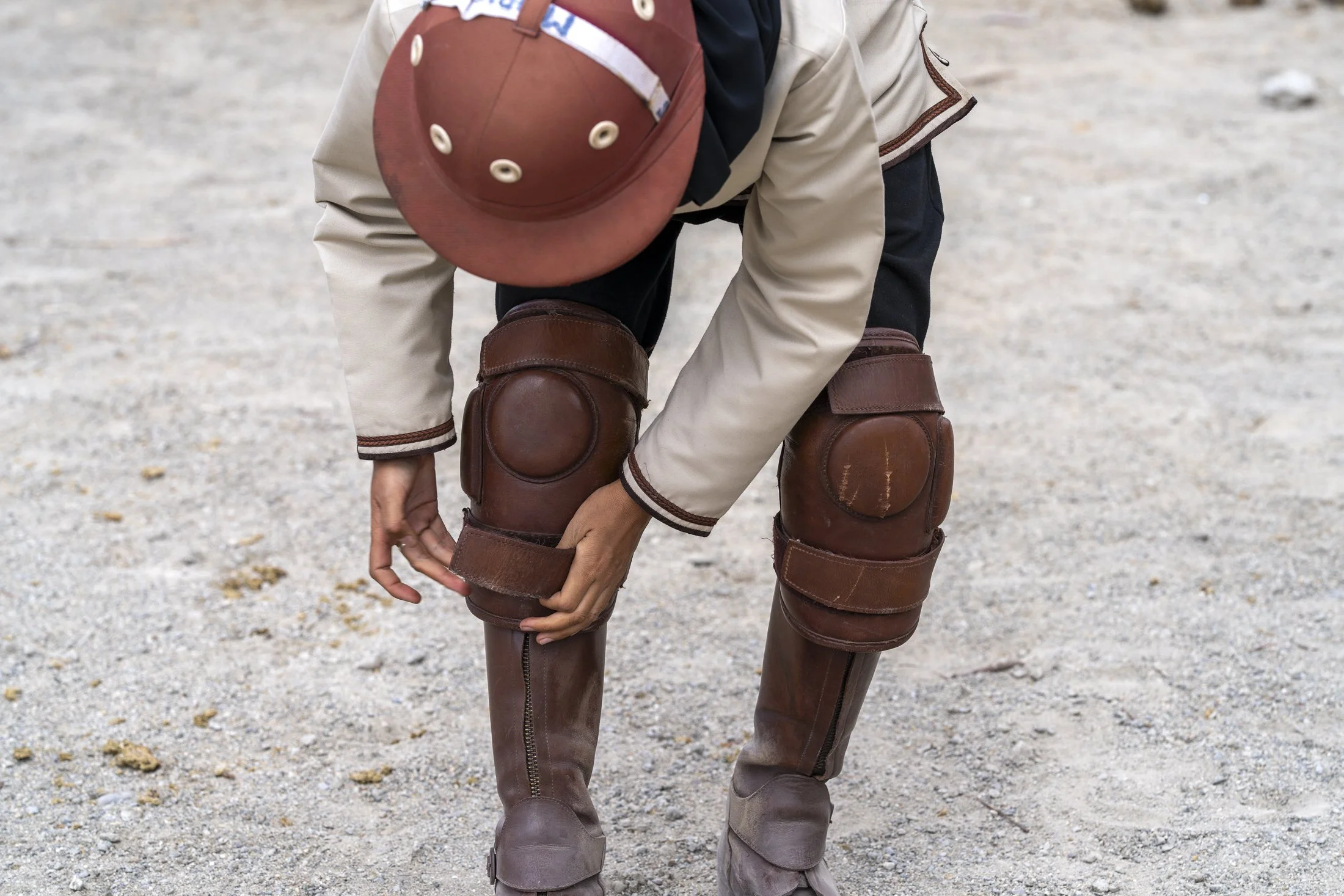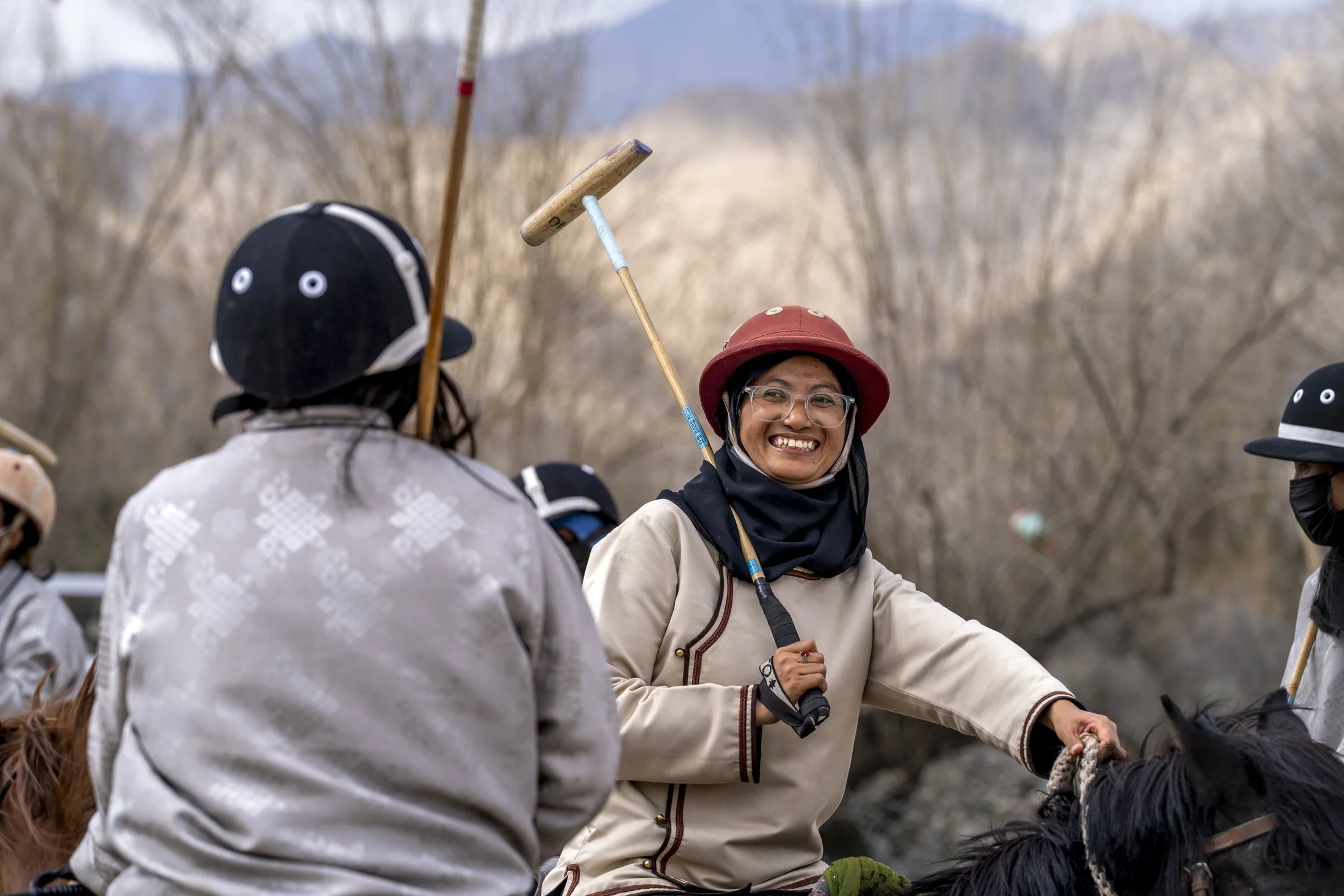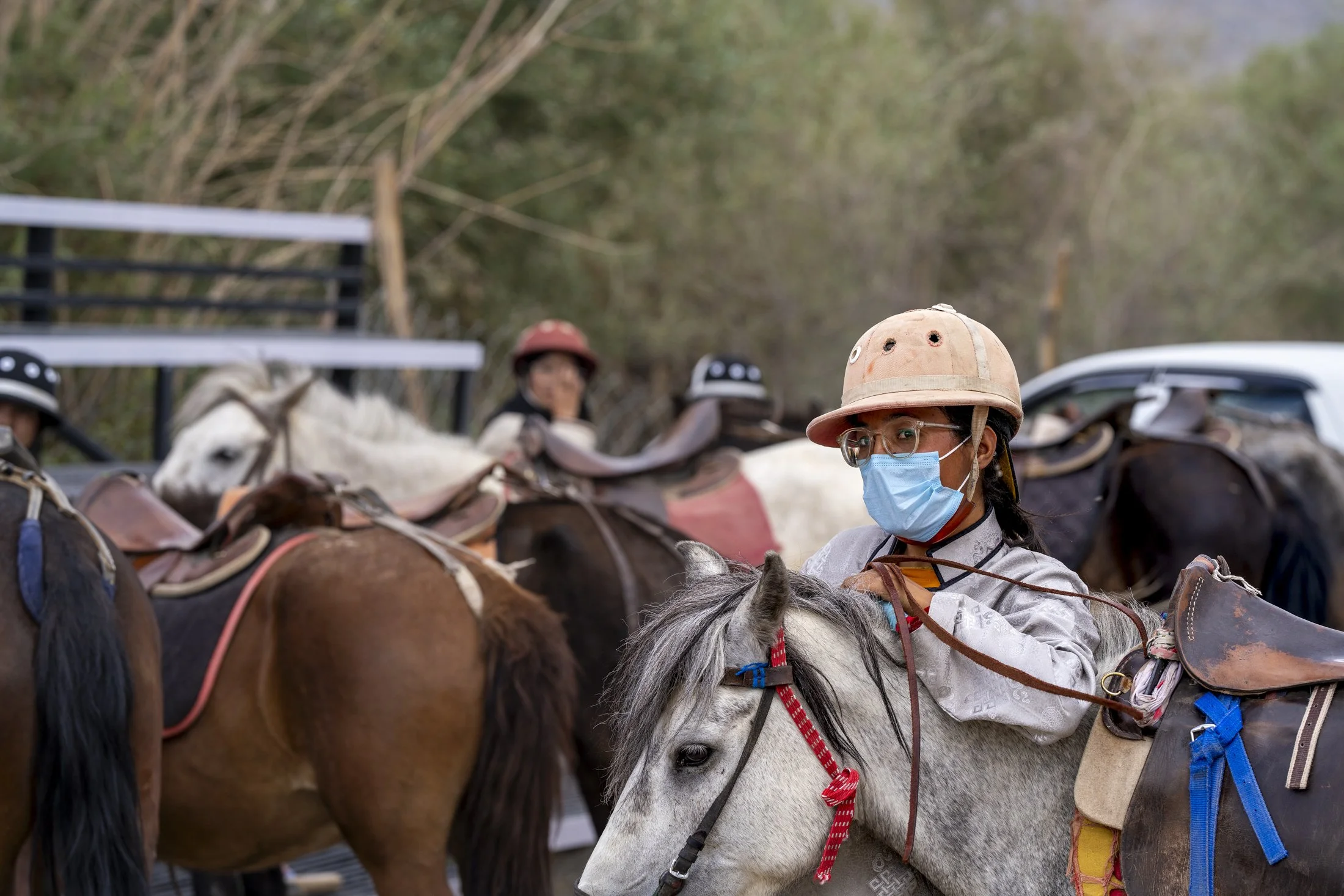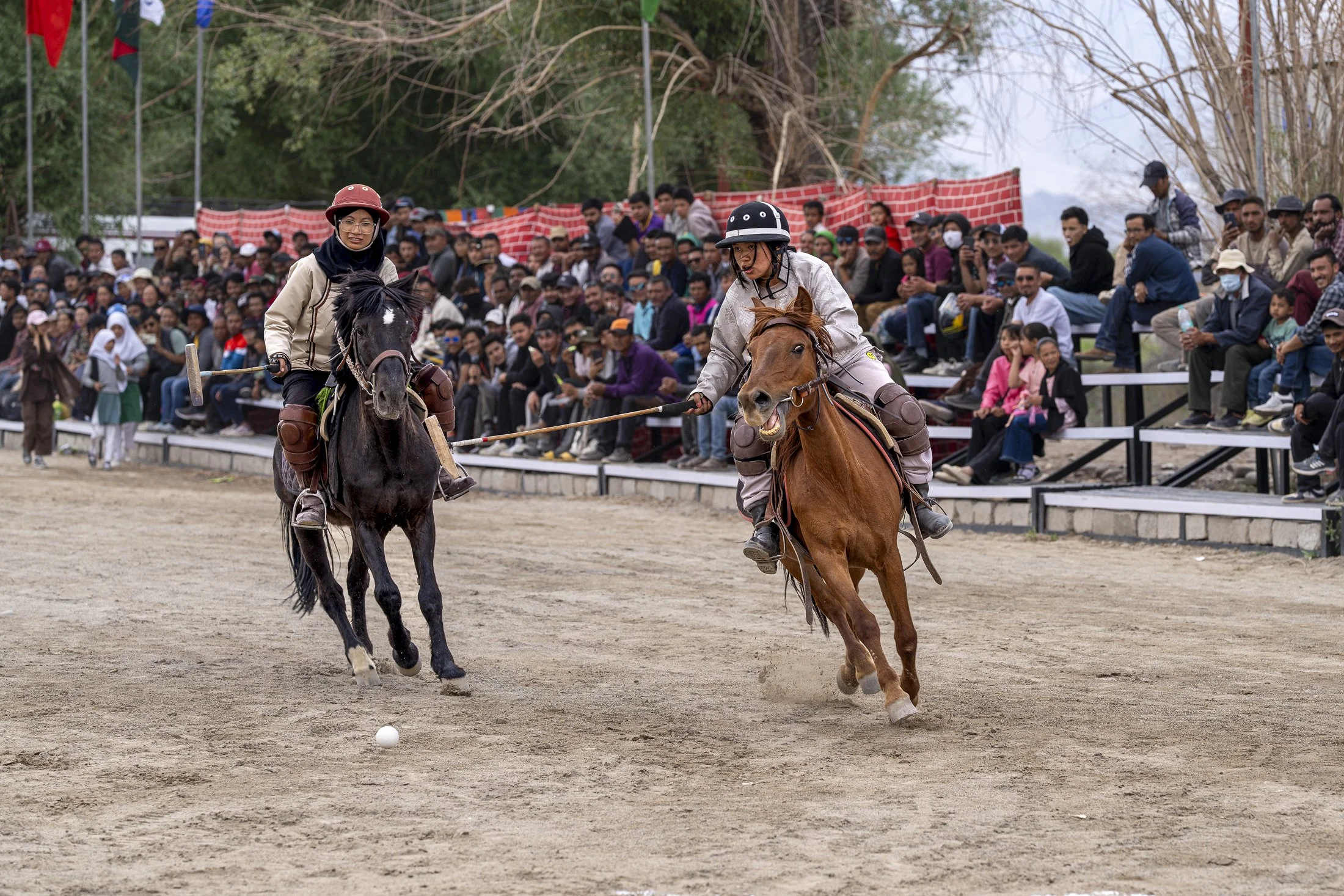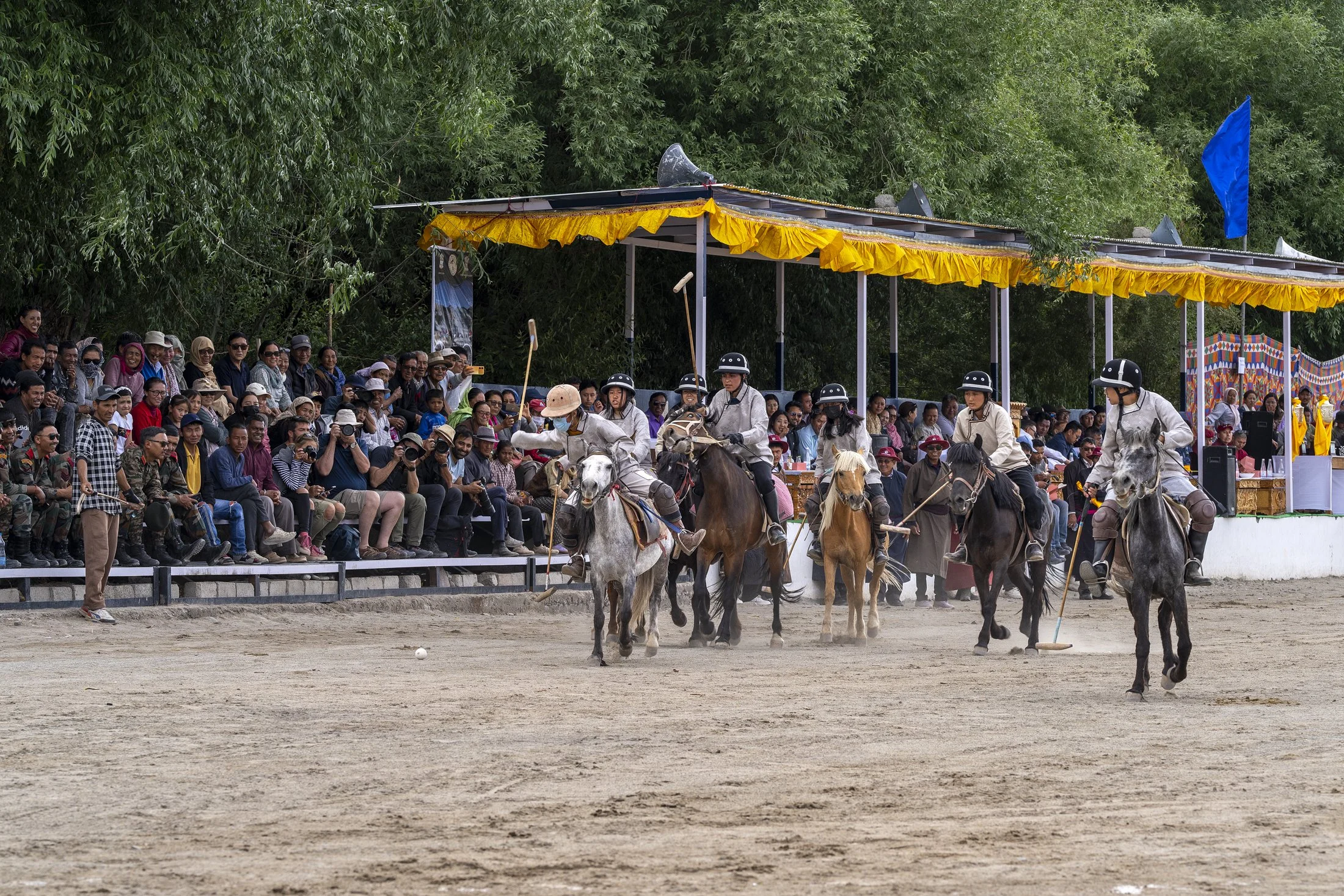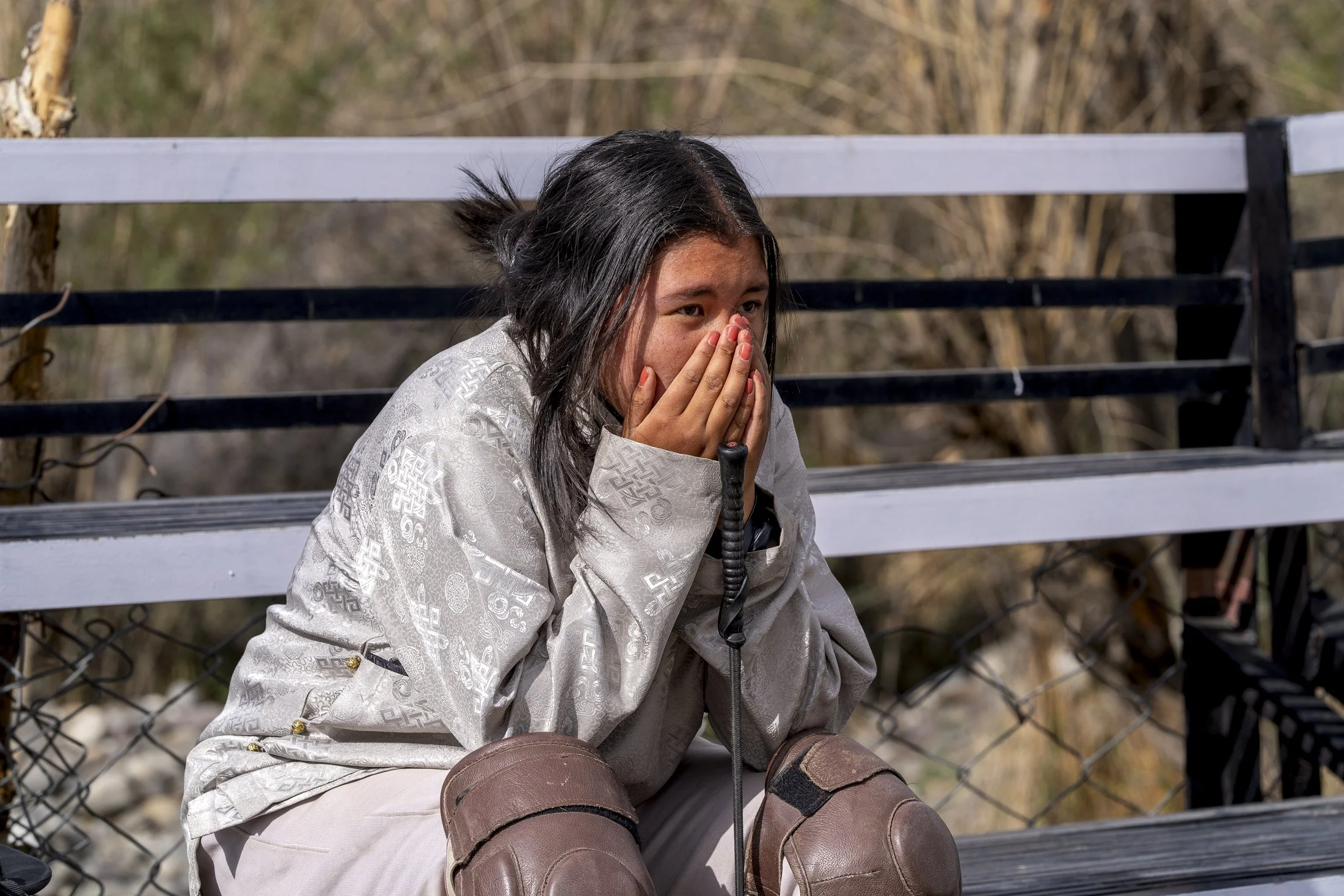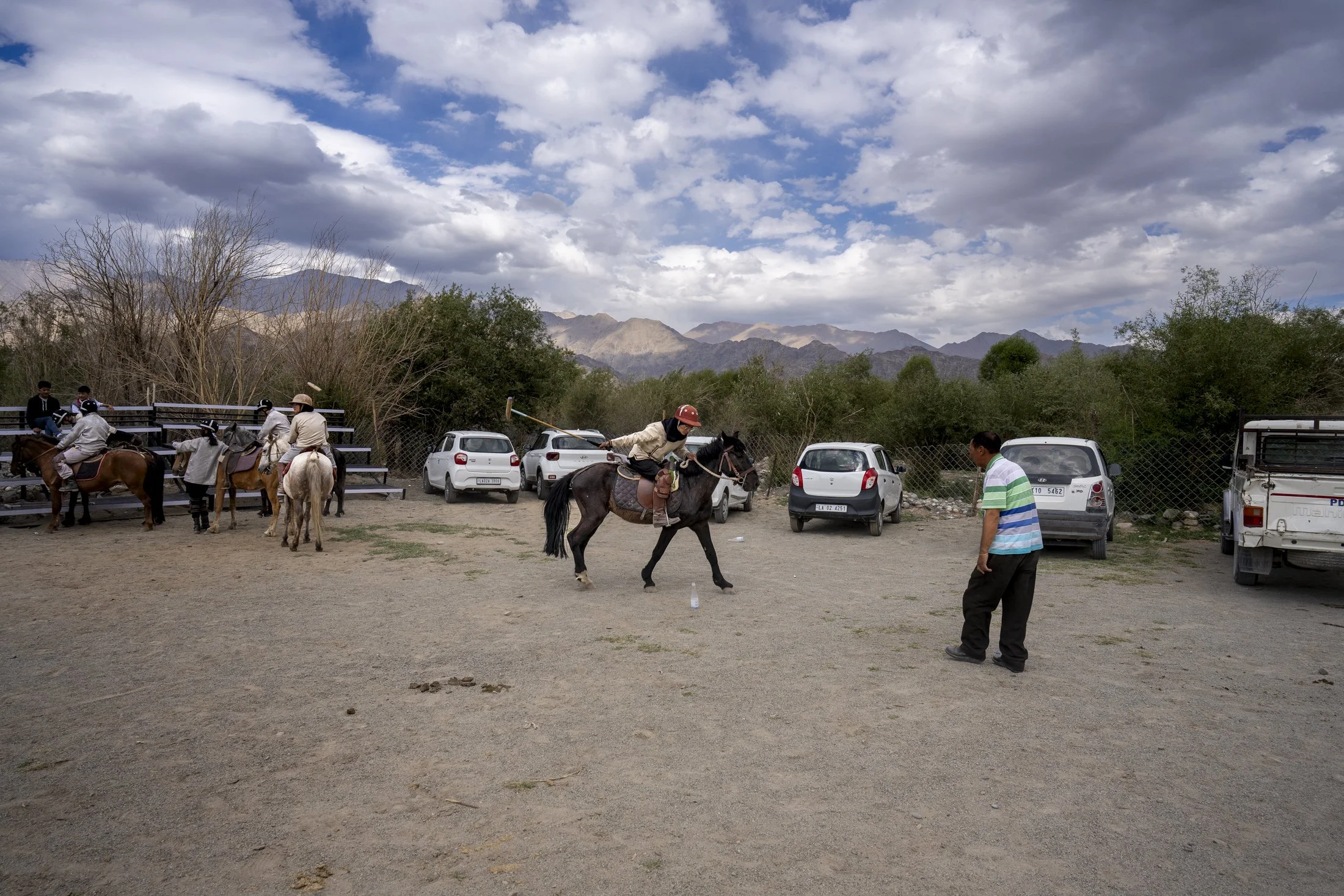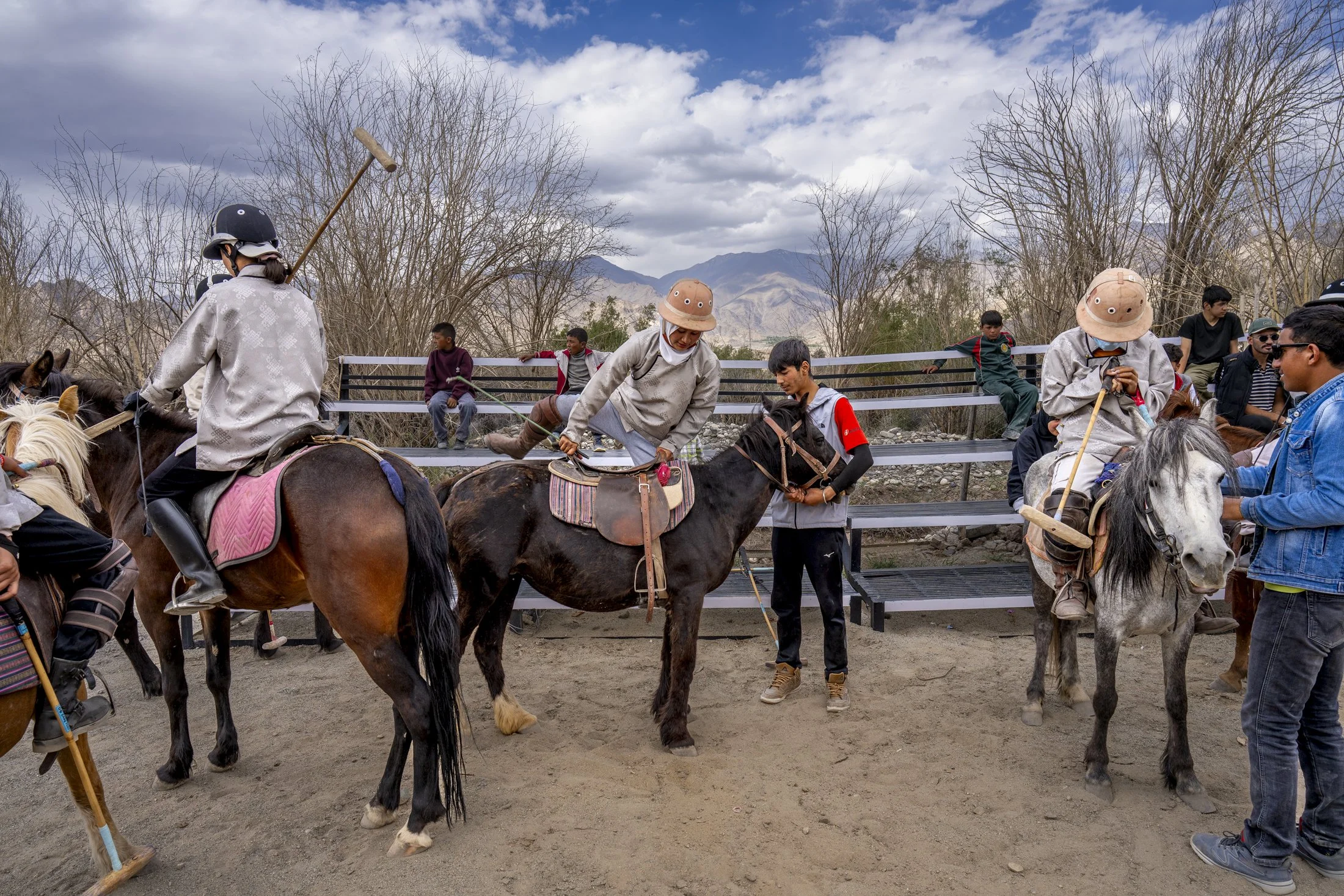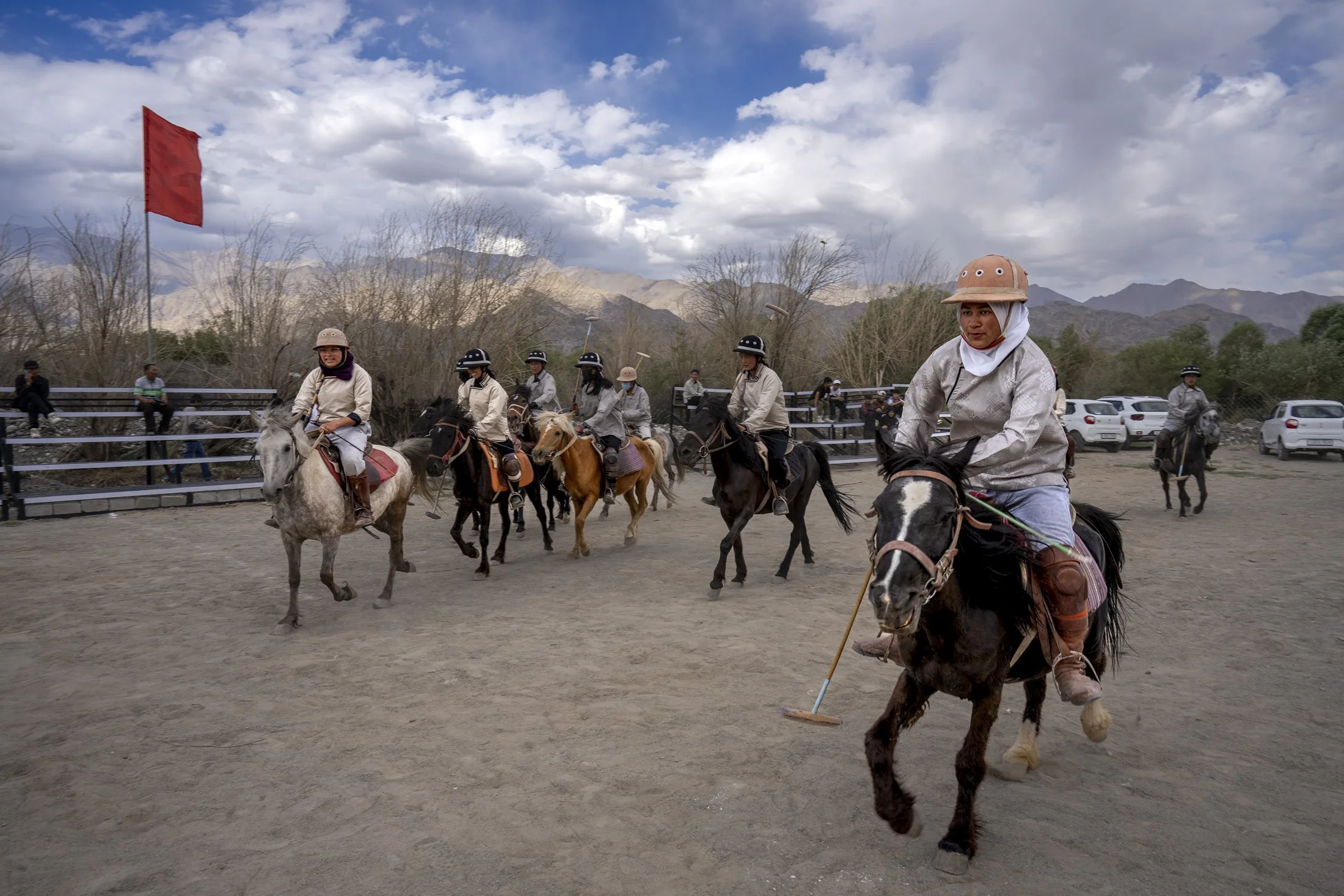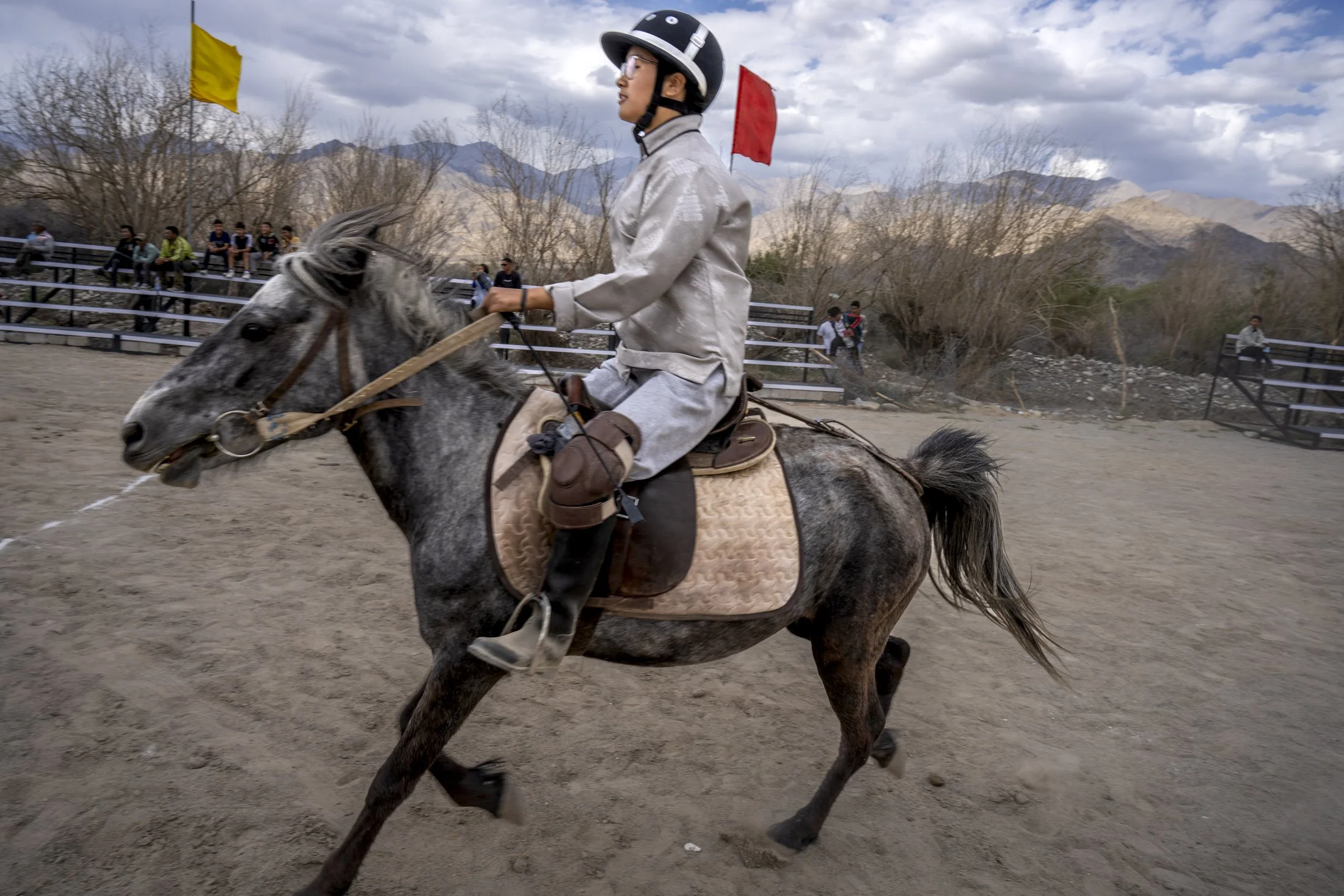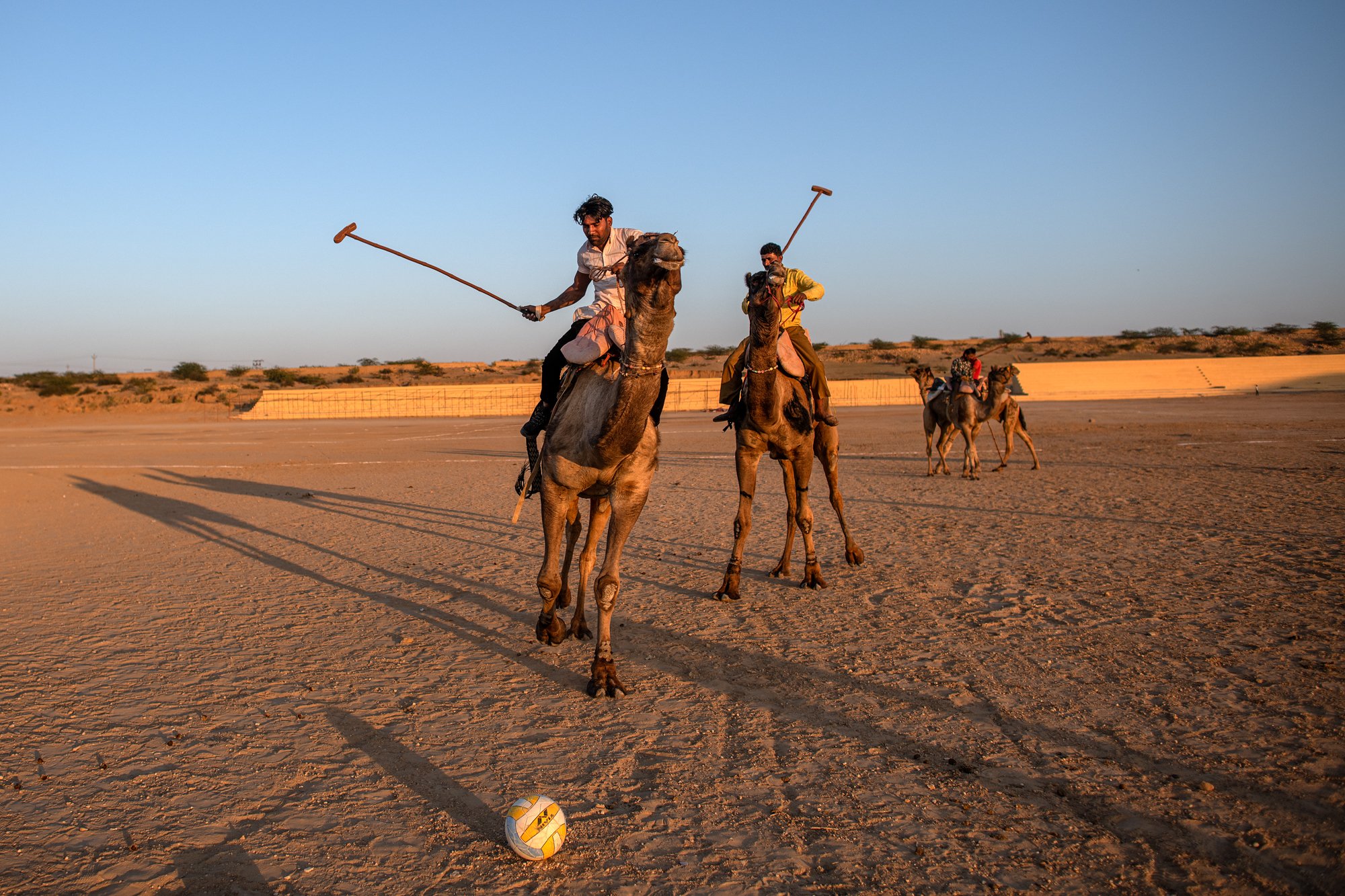On the Polo Grounds of Ladakh: Women Redefining Tradition
Julley! My name is Stanzin Edzes.
I am from Chushot Shama, Leh, Ladakh, India. I am currently studying in the 11th standard. Until the 8th standard, I attended school in my hometown, but afterward, I moved to a boarding school 700 km away.
I love playing soccer during my free time. In Ladakh, most outdoor games like football, cricket, volleyball, polo, and track-and-field events are played only during the summer because the winters are extremely harsh, with freezing temperatures that make such activities impossible.
During the summer, my village hosts polo festivals. I used to watch men’s polo matches, which were very popular. One day, my coach approached me and a friend to ask if we could ride horses to welcome the Chief Guest at an event. We agreed, and for fun, we started practicing early in the mornings. At that time, polo was considered a men’s game, but over time, women began playing, and it was eventually recognized as a legitimate sport. Previously, it was just a traditional game played by the elders in the village.
We practiced for five days, and during the first CEC Polo Cup, I participated in horseback riding, which later turned into a horse race. Our group consisted of four members, and each of us received certificates and trophies. We were proud to be the first legitimate women’s polo team in Ladakh.
After completing my 9th standard, I returned to my hostel and school. The following year, in 2023, the second CEC Polo Cup was held in our village (Chushot Shama) in June/July. The Chief Guest, the Governor, was impressed by us and arranged a tea party. He also gave us an incredible opportunity: a chance to visit New Delhi for training at Rashtrapati Bhavan (the residence of the President of India). Only the top 10 girls out of 30 would be selected.
Before the selection process, there was a race during which I injured my arm and suffered a dislocation. Despite this, I participated in the selection process and made it into the top 10. I convinced the doctor to remove my plaster for the matches, even though my arm felt stiff and weak.
The top 10 girls were sent to New Delhi, where we stayed at Ladakh Bhavan and trained on the PBG grounds under the supervision of Colonel Amit Berwal. We also met Monika Saxena, the first women’s polo team captain in 2016, who was a huge source of inspiration and encouragement for us.
The training lasted 25 days, during which we learned basic skills and techniques. After returning to Ladakh, we were invited by the CEC to showcase our training during the upcoming Ladakh Festival. The purpose of the training was successfully achieved, and it felt immensely rewarding.
Later in 2023, during the third CEC Polo Cup, our team won 2–0, and I scored both goals. It was during this event that I met Simon Villiger, who captured beautiful pictures of our team, which amazed and inspired me.
Challenges I Faced:
Playing polo as a woman in a patriarchal society has not been easy. We were not provided with proper safety equipment, and while men’s matches lasted 40 minutes, women’s matches were limited to just 7 minutes. Traveling frequently for polo affected my studies significantly. My parents and doctor also forbade me from participating in matches after my arm injury, but I still took part. Additionally, there was a shortage of fodder for our horses, so my teammates and I contributed money to ensure they had sufficient food.
Current Status and Future Plans:
I am currently studying in Bangalore for my 11th and 12th standards. I am determined to continue playing polo and hope to represent Ladakh at higher levels. Women playing polo is still a relatively new concept, but my parents, coach, CEC, Governor, and Councilor have been my biggest supporters.
Ladakhi polo often follows traditional rules that differ from international standards. For example:
Ladakhi polo teams are usually larger than international ones, which typically have four players.
The playing fields in Ladakh are rough and less uniform compared to the manicured grass fields used internationally, affecting gameplay and strategies.
Indigenous horse breeds, smaller and more suited to Ladakh’s terrain, are used instead of the thoroughbreds common in international polo.
Polo in Ladakh is deeply rooted in cultural events and festivals, serving as a community celebration rather than just a competitive sport. Matches are often accompanied by music, dance, and local traditions.
I remain grateful for the opportunities and experiences polo has brought into my life and hope to inspire other young girls in Ladakh to take up this remarkable sport.
Royal Women's Polo Team
Stanzin Edzes
Chunzin Angmo
Jigmet Stanzin
Rinchen Zangmo
Stanzin Angmo
Punchok Dolma
Samina Kousar

